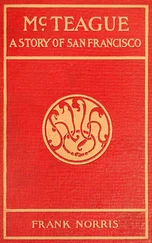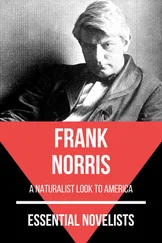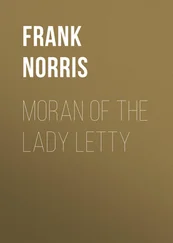Frank Norris - A Man's Woman
Здесь есть возможность читать онлайн «Frank Norris - A Man's Woman» — ознакомительный отрывок электронной книги совершенно бесплатно, а после прочтения отрывка купить полную версию. В некоторых случаях можно слушать аудио, скачать через торрент в формате fb2 и присутствует краткое содержание. Издательство: Иностранный паблик, Жанр: foreign_prose, literature_19, foreign_antique, на английском языке. Описание произведения, (предисловие) а так же отзывы посетителей доступны на портале библиотеки ЛибКат.
- Название:A Man's Woman
- Автор:
- Издательство:Иностранный паблик
- Жанр:
- Год:неизвестен
- ISBN:нет данных
- Рейтинг книги:5 / 5. Голосов: 1
-
Избранное:Добавить в избранное
- Отзывы:
-
Ваша оценка:
- 100
- 1
- 2
- 3
- 4
- 5
A Man's Woman: краткое содержание, описание и аннотация
Предлагаем к чтению аннотацию, описание, краткое содержание или предисловие (зависит от того, что написал сам автор книги «A Man's Woman»). Если вы не нашли необходимую информацию о книге — напишите в комментариях, мы постараемся отыскать её.
A Man's Woman — читать онлайн ознакомительный отрывок
Ниже представлен текст книги, разбитый по страницам. Система сохранения места последней прочитанной страницы, позволяет с удобством читать онлайн бесплатно книгу «A Man's Woman», без необходимости каждый раз заново искать на чём Вы остановились. Поставьте закладку, и сможете в любой момент перейти на страницу, на которой закончили чтение.
Интервал:
Закладка:
"No, no; after all, I have lived."
And how had she lived? For the moment Lloyd was willing to compare herself with the girl in the landau. Swiftly she ran over her own life from the time when left an orphan; in the year of her majority she had become her own mistress and the mistress of the Searight estate. But even at that time she had long since broken away from the conventional world she had known. Lloyd was a nurse in the great St Luke's Hospital even then, had been a probationer there at the time of her mother's death, six months before. She had always been ambitious, but vaguely so, having no determined object in view. She recalled how at that time she knew only that she was in love with her work, her chosen profession, and was accounted the best operating nurse in the ward.
She remembered, too, the various steps of her advancement, the positions she had occupied; probationer first, then full member of the active corps, next operating nurse, then ward manager, and, after her graduation, head nurse of ward four, where the maternity cases were treated. Then had come the time when she had left the hospital and practised private nursing by herself, and at last, not so long ago, the day when her Idea had so abruptly occurred to her; when her ambition, no longer vague, no longer personal, had crystallised and taken shape; when she had discovered a use for her money and had built and founded the house on Calumet Square. For a time she had been the superintendent of nurses here, until her own theories and ideas had obtained and prevailed in its management. Then, her work fairly started, she had resigned her position to an older woman, and had taken her place in the rank and file of the nurses themselves. She wished to be one of them, living the same life, subject to the same rigorous discipline, and to that end she had never allowed it to be known that she was the founder of the house. The other nurses knew that she was very rich, very independent and self-reliant, but that was all. Lloyd did not know and cared very little how they explained the origin and support of the agency.
Lloyd was animated by no great philanthropy, no vast love of humanity in her work; only she wanted, with all her soul she wanted, to count in the general economy of things; to choose a work and do it; to help on, donner un coup d'epaule ; and this, supported by her own stubborn energy and her immense wealth, she felt that she was doing. To do things had become her creed; to do things, not to think them; to do things, not to talk them; to do things, not to read them. No matter how lofty the thoughts, how brilliant the talk, how beautiful the literature—for her, first, last, and always, were acts, acts, acts—concrete, substantial, material acts. The greatest and happiest day of her life had been when at last she laid her bare hand upon the rough, hard stone of the house in the square and looked up at the facade, her dull-blue eyes flashing with the light that so rarely came to them, while she murmured between her teeth:
"I—did—this."
As she recalled this moment now, leaning upon her elbows, looking down upon the trees and grass and asphalt of the square, and upon a receding landau, a wave of a certain natural pride in her strength, the satisfaction of attainment, came to her. Ah! she was better than other women; ah! she was stronger than other women; she was carrying out a splendid work. She straightened herself to her full height abruptly, stretching her outspread hands vaguely to the sunlight, to the City, to the world, to the great engine of life whose lever she could grasp and could control, smiling proudly, almost insolently, in the consciousness of her strength, the fine steadfastness of her purpose. Then all at once the smile was struck from her lips, the stiffness of her poise suddenly relaxed. There, there it was again, the terror, the dreadful fear she dared not name, back in its place once more—at her side, at her shoulder, at her throat, ready to clutch at her from out the dark.
She wheeled from the window, from the sunlight, her hands clasped before her trembling lips, the tears brimming her dull-blue eyes. For forty-eight hours she had fought this from her. But now it was no longer to be resisted.
"No, no," she cried half aloud. "I am no better, no stronger than the others. What does it all amount to when I know that, after all, I am just a woman—just a woman whose heart is slowly breaking?"
But there was an interruption. Rownie had knocked twice at her door before Lloyd had heard her. When Lloyd had opened the door the girl handed her a card with an address written on it in the superintendent's hand.
"This here jus' now come in f'om Dr. Street, Miss Lloyd," said Rownie; "Miss Bergyn" (this was the superintendent nurse) "ast me to give it to you."
It was a call to an address that seemed familiar to Lloyd at first; but she did not stop at that moment to reflect. Her stable telephone hung against the wall of the closet. She rang for Lewis, and while waiting for him to get around dressed for the street.
For the moment, at the prospect of action, even her haunting fear drew off and stood away from her. She was absorbed in her work upon the instant—alert, watchful, self-reliant. What the case was she could only surmise. How long she would be away she had no means of knowing—a week, a month, a year, she could not tell. But she was ready for any contingency. Usually the doctors informed the nurses as to the nature of the case at the time of sending for them, but Dr. Street had not done so now.
However, Rownie called up to her that her coupé was at the door. Lloyd caught up her satchels and ran down the stairs, crying good-bye to Miss Douglass, whom she saw at the farther end of the hall. In the hallway by the vestibule she changed the slide bearing her name from the top to the bottom of the roster.
"How about your mail?" cried Miss Douglass after her.
"Keep it here for me until I see how long I'm to be away," answered Lloyd, her hand upon the knob. "I'll let you know."
Lewis had put Rox in the shafts, and while the coupé spun over the asphalt at a smart clip Lloyd tried to remember where she had heard of the address before. Suddenly she snapped her fingers; she knew the case, had even been assigned to it some eight months before.
"Yes, yes, that's it—Campbell—wife dead—Lafayette Avenue—little daughter, Hattie—hip disease—hopeless—poor little baby."
Arriving at the house, Lloyd found the surgeon, Dr. Street, and Mr. Campbell, who was a widower, waiting for her in a small drawing-room off the library. The surgeon was genuinely surprised and delighted to see her. Most of the doctors of the City knew Lloyd for the best trained nurse in the hospitals.
"Oh, it's you, Miss Searight; good enough!" The surgeon introduced her to the little patient's father, adding: "If any one can pull us through, Campbell, it will be Miss Searight."
The surgeon and nurse began to discuss the case.
"I think you know it already, don't you, Miss Searight?" said the surgeon. "You took care of it a while last winter. Well, there was a little improvement in the spring, not so much pain, but that in itself is a bad sign. We have done what we could, Farnham and I. But it don't yield to treatment; you know how these things are—stubborn. We made a preliminary examination yesterday. Sinuses have occurred, and the probe leads down to nothing but dead bone. Farnham and I had a consultation this morning. We must play our last card. I shall exsect the joint to-morrow."
Mr. Campbell drew in his breath and held it for a moment, looking out of the window.
Very attentive, Lloyd merely nodded her head, murmuring:
"I understand."
When Dr. Street had gone Lloyd immediately set to work. The operation was to take place at noon the following day, and she foresaw there would be no sleep for her that night. Street had left everything to her, even to the sterilising of his instruments. Until daylight the following morning Lloyd came and went about the house with an untiring energy, yet with the silence of a swiftly moving shadow, getting together the things needed for the operation—strychnia tablets, absorbent cotton, the rubber tubing for the tourniquet, bandages, salt, and the like—and preparing the little chamber adjoining the sick-room as an operating-room.
Читать дальшеИнтервал:
Закладка:
Похожие книги на «A Man's Woman»
Представляем Вашему вниманию похожие книги на «A Man's Woman» списком для выбора. Мы отобрали схожую по названию и смыслу литературу в надежде предоставить читателям больше вариантов отыскать новые, интересные, ещё непрочитанные произведения.
Обсуждение, отзывы о книге «A Man's Woman» и просто собственные мнения читателей. Оставьте ваши комментарии, напишите, что Вы думаете о произведении, его смысле или главных героях. Укажите что конкретно понравилось, а что нет, и почему Вы так считаете.












